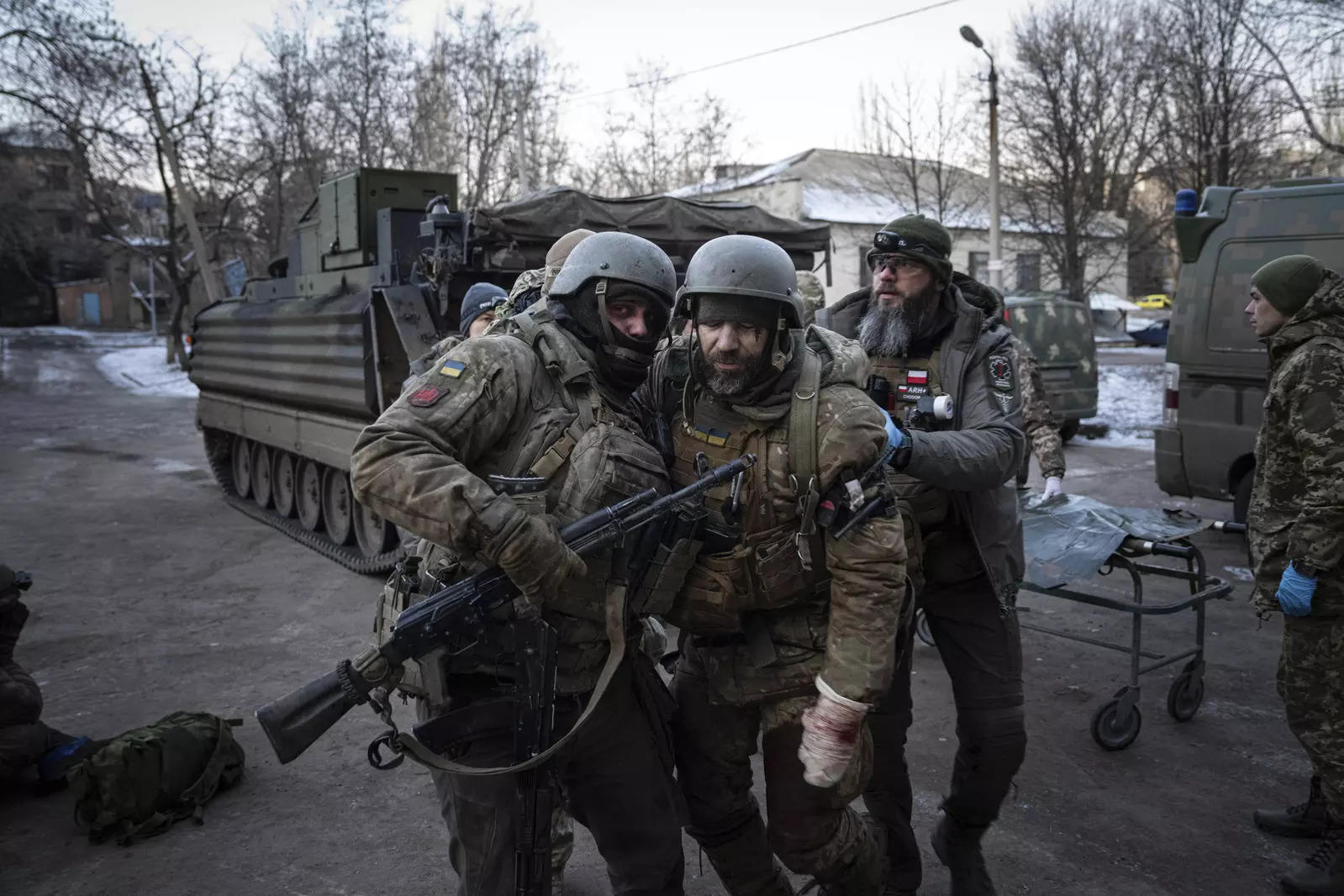NATO has labeled Russia as the most “immediate threat” to Allied security and has vowed to modernize Ukraine’s beleaguered armed forces to support the “heroic defense of their country”.
Following the completion of a summit dominated by the invasion and the geopolitical upheaval it brought about, NATO formally invited Sweden and Finland to join the military alliance and pledged the combat-ready and responsive forces to the eastern flank closest to Russia.
US President Joe Biden announced additional US land, air, and sea deployments across Europe, from Spain in the west to Romania and Poland bordering Ukraine.

They include a permanent army headquarters and associated battalion in Poland – the first full-time US deployment on NATO’s eastern edge.
While the 30 NATO leaders met in Madrid, Russian forces intensified attacks in Ukraine, including missile strikes on the southern region of Mykolaiv close to the front lines.
The mayor of Mykolaiv said a Russian missile had killed at least five people in a residential building there. In contrast, Russia said its troops had hit a so-called training base for foreign mercenaries in the region.
The governor of the eastern province of Luhansk reported that there was “fighting everywhere” in a battle around the hill town of Lysychansk, which Russian forces are trying to encircle as they gradually advance in a campaign to conquer the entire industrialized eastern Donbas region of Ukraine on behalf of separatist proxies. To conquer.
President Volodymyr Zelenskiy reiterated to NATO leaders that Ukraine needed more weapons and money, and faster, to erode Russia’s vast lead in artillery and missile firepower, and warned that the Kremlin’s ambitions did not stop with Ukraine.
Ukrainian Foreign Minister Dmytro Kuleba praised NATO’s “clear stance” on Russia and said the summit’s outcome proved “it can make difficult but vital decisions”.
A NATO communiqué called Russia the “most significant and immediate threat to the security and stability of the Allies”, a nod to the abrupt deterioration in relations with Russia – previously classified as a “strategic partner” – since the invasion.
Russia’s “war of aggression against Ukraine has disrupted peace and seriously changed our security environment,” NATO said in a new Strategic Concept document, the first since 2010.
“A highly independent Ukraine is vital for the stability of the Euro-Atlantic area.”
NATO agreed to a support package to modernize Ukraine’s largely Soviet military.
“We are in full solidarity with the government and the people of Ukraine in the heroic defense of their country,” the statement said.
“We are sending a strong message to (Russian President Vladimir) Putin: ‘You will not win,'” said Spanish Prime Minister Pedro Sanchez, the host of the summit.
The US-led military alliance said it would also deploy more “robust forces on the ground” on the eastern flank, scaling up from existing battlegroups to brigade-sized units.
NATO Secretary General Jens Stoltenberg had announced ahead of the summit that the alliance planned to increase the number of military personnel on high alert sevenfold to more than 700,000.
Zelenskiy said in a video link with the summit that Ukraine needed $5 billion ($7.2 billion) a month for its defense and protection.
“This is not a war that Russia is waging against Ukraine alone. This is a war for the right to dictate the terms in Europe — for what the future world order will look like,” he said.
Russia’s ramped-up attacks in Ukraine, following a rocket attack that killed at least 18 people on Monday in a shopping center in a central city far from the front lines, come as Russian forces progress slowly but relentlessly in a war now in its fifth month. Enters.
In Mykolaiv, Mayor Oleksandr Senkevych said eight Russian missiles had hit the city, including an apartment building.
Photos show smoke billowing from a four-story building, the top floor of which has been partially destroyed.
Russia’s defense ministry said its troops launched attacks on a military training base for “foreign mercenaries” near the city and hit ammunition depots.
Reuters was unable to independently verify the messages.
Mykolaiv, a river port and shipbuilding center near the Black Sea, was a bastion against Russian attempts to move west to Ukraine’s main port, Odesa.
The regional governor of Mykolaiv, Vitaliy Kim, said Russian shelling had increased and mainly civilian buildings were hit.
Oleksandr Vilkul, governor of Kryvyi Rih in central Ukraine, said Russian shelling had also increased there.

